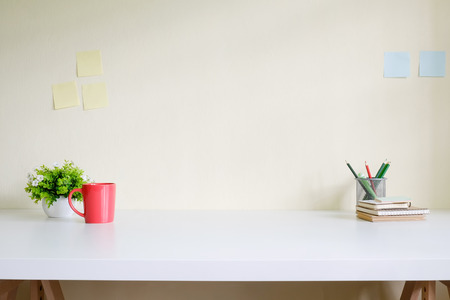Introduction: Creativity and the Modern UK Workspace
In today’s dynamic British work environment, creativity is no longer a luxury but an essential driver of innovation and progress. Companies across the UK, from forward-thinking London start-ups to established businesses in Manchester and Edinburgh, are recognising that fostering creativity at the desk can lead to greater productivity, enhanced problem-solving, and a competitive edge. As workplace culture continues to evolve, there is a growing emphasis on designing offices that do more than simply house employees—they must inspire them. This has led to a fascinating blend of artistic design principles and time-honoured practices such as Feng Shui being introduced into British workspaces. By thoughtfully merging creative aesthetics with the ancient wisdom of Feng Shui, organisations are uncovering new ways to energise their teams and cultivate an atmosphere where innovation flourishes.
2. Understanding Feng Shui: An Eastern Tradition Meets British Sensibility
Feng Shui, an ancient Chinese practice, focuses on the harmonious arrangement of spaces to promote positive energy flow, or “chi.” At its core, Feng Shui seeks balance between five natural elements—wood, fire, earth, metal, and water—and aims to create environments that nurture wellbeing and creativity. While traditionally rooted in Eastern philosophy, these principles can be thoughtfully adapted to suit British office culture, where a blend of heritage and contemporary style prevails.
Feng Shui Principles Explained
Key concepts in Feng Shui include the importance of clear pathways for energy, strategic placement of furniture, and the use of specific colours and materials to evoke desired moods. For example, desks should face the door for a sense of security (the “command position”), while clutter should be minimised to encourage clarity of thought—a value well-aligned with British preferences for orderliness and practicality.
Blending Eastern Harmony with British Aesthetics
British office environments often celebrate a mix of tradition and modernity: think historic architecture paired with innovative design. Feng Shui’s emphasis on natural light, earthy tones, and biophilic elements dovetails naturally with the UK’s appreciation for period details and sustainable practices. By choosing artwork that reflects local landscapes or utilising vintage wood furnishings alongside contemporary accents, offices can achieve both visual interest and energetic balance.
Comparing Feng Shui Elements with UK Office Design Values
| Feng Shui Element | Traditional Meaning | UK Office Interpretation |
|---|---|---|
| Wood | Growth & Vitality | Use of oak desks or potted plants to bring warmth and life into workspace |
| Fire | Passion & Inspiration | Bright artwork or bold accent colours to stimulate creativity |
| Earth | Stability & Nourishment | Stone features or clay pottery reflecting British craftsmanship |
| Metal | Focus & Clarity | Sleek metallic lamps or frames echoing industrial heritage |
| Water | Flow & Calmness | Inclusion of glass décor or images of rivers celebrating UK waterways |
This thoughtful integration encourages not only a visually pleasing workspace but also supports productivity and wellbeing in ways that feel authentically British while honouring Feng Shuis timeless wisdom.

3. Curating Artistic Workspaces: British Art, Design, and Personal Expression
The United Kingdom boasts a rich heritage of blending artistry with everyday life, particularly within its professional environments. From the stately offices of London’s legal chambers to the creative studios in Manchester, there is a longstanding tradition of weaving British art and culture into workspaces to inspire innovation and foster productivity. Drawing upon this heritage, curating your own artistic workspace begins with an appreciation for local creativity—whether through classic landscape watercolours, contemporary prints, or the iconic works of celebrated British artists such as J.M.W. Turner or Barbara Hepworth.
Integrating Local Artwork
Start by selecting pieces that resonate with your personal taste while reflecting the cultural landscape around you. Consider featuring works by local artists or prints from regional galleries; these not only support your community but also provide unique talking points for visitors and colleagues. A framed print of the Yorkshire Dales or a vibrant depiction of London’s urban sprawl can both root your workspace in its environment and offer daily inspiration. Don’t shy away from mixing traditional and modern elements—a juxtaposition that echoes the UK’s own balance between historical legacy and forward-thinking design.
Modern Design Elements
Beyond artwork, incorporate contemporary British design staples such as minimalist desk lamps from Anglepoise or sleek chairs by Ercol to bring both comfort and style to your workspace. Experiment with textures and materials—think woollen throws, ceramic mugs from Cornish potters, or even vintage wooden stationery boxes—to add warmth and tactile interest. These touches not only elevate aesthetics but also encourage a sense of pride in British craftsmanship.
Personal Expression Matters
Your workspace should be a canvas for self-expression. Display favourite books by local authors, pin up postcards from UK exhibitions, or arrange potted herbs on your windowsill to infuse the space with personality and vitality. The aim is to create an environment where both tradition and individuality thrive, enhancing creativity while honouring Britain’s enduring relationship with art and design.
4. Practical Feng Shui Tips for UK Desks and Studios
Transforming your workspace into a haven of creativity and wellbeing requires more than just inspiration—it demands thoughtful design that resonates with both traditional Feng Shui principles and the nuances of British work culture. Here are actionable tips, tailored to UK desks and studios, that blend age-old wisdom with contemporary practicality.
Desk Layout and Placement
The position of your desk has a profound effect on your focus and creative energy. Ideally, place your desk in the “command position”—facing the door but not directly in line with it. This arrangement is believed to foster a sense of control and security. For those in shared offices or open-plan environments common in the UK, use subtle dividers or shelving units made from British oak or ash to create a personal zone without isolating yourself from colleagues.
Lighting: Harnessing Natural and Local Resources
Natural light is invaluable for boosting creativity and mood. If possible, situate your desk near a window to benefit from Britain’s often gentle daylight, which is less harsh than in other climates. For grey days (of which there are many), choose adjustable lamps with warm-toned bulbs to mimic natural sunlight. Consider lamps crafted by local artisans—these not only support British makers but also infuse your space with unique character.
Incorporating Local Materials and Greenery
Integrate elements sourced from the UK’s rich natural landscape. Use slate coasters from Wales, stoneware pots from the Cotswolds, or Scottish wool desk mats. Live plants such as English ivy or lavender can thrive on a windowsill, purifying air while adding a touch of countryside calm.
Quick Reference Table: Feng Shui Essentials for UK Workspaces
| Element | Feng Shui Principle | British Adaptation |
|---|---|---|
| Desk Position | Command Position | Face the door, use local wood dividers if needed |
| Light | Maximise Natural Light | Window placement; warm lamps on cloudy days |
| Materials | Natural Elements | Slate, stoneware, wool from UK sources |
| Plants | Life Energy (Qi) | Ivy, lavender, rosemary in pottery from local makers |
| Decluttering | Smooth Flow of Qi | Use baskets or organisers woven by British craftspeople |
Tidiness and Personal Touches Matter
A clutter-free environment ensures that energy flows freely—a core tenet of Feng Shui. Regularly clear paperwork and keep only essential items on your desktop. Add personal touches like framed prints of local landscapes or antique stationery holders for an inspiring yet orderly workspace.
By integrating these practical Feng Shui guidelines—with respect for local materials and customs—you’ll cultivate an artistic space at your desk that honours both tradition and the creative spirit thriving across the UK.
5. Case Studies: British Offices and Studios Embracing Creativity
Across the UK, a growing number of innovative workplaces are reimagining their environments to nurture creativity by marrying artistic sensibilities with the time-honoured principles of Feng Shui. These real-life examples illuminate how blending tradition with modernity can spark both productivity and inspiration.
The London Design Collective
Situated in Shoreditch, The London Design Collective has become a beacon for creative professionals seeking a harmonious workspace. By integrating natural materials, curated art installations from local artists, and Feng Shui-guided layouts, they’ve crafted an atmosphere that not only inspires but also facilitates effortless collaboration. Their open-plan areas are strategically aligned to maximise light flow and energy, proving especially popular among graphic designers and architects who value both aesthetic and functionality.
Edinburgh Tech Studio
This dynamic tech hub in Scotland’s capital is renowned for its mindful approach to office design. Drawing on Feng Shui concepts such as the commanding position for desks and the use of calming water features, the studio successfully reduces stress while boosting focus. Employees have reported increased satisfaction, attributing it to the presence of locally commissioned murals and thoughtfully placed greenery—elements that bring a distinctly Scottish character to their daily work life.
Creative Co-Working Spaces in Manchester
Manchester’s flourishing co-working scene offers further testament to this trend. At spaces like The Assembly, interior designers have collaborated with Feng Shui consultants to create zones that balance energy and artistic flair. Flexible seating arrangements, vibrant communal art walls, and soft lighting are paired with strategic desk orientations, encouraging entrepreneurs and freelancers alike to thrive creatively.
Boutique Agencies Embracing Artistic Heritage
Independent agencies across Bristol and Brighton are also leading the way. Many have transformed historic buildings into studios where traditional British craftsmanship meets holistic well-being practices. Here, antique furnishings sit alongside contemporary sculpture, and the careful placement of plants ensures positive energy circulates throughout. These offices serve as living examples of how respecting heritage while embracing modern wellness philosophies can yield outstanding results.
Through these case studies, it becomes clear that UK businesses—large and small—are discovering fresh ways to enhance creativity at their desks. By weaving together artistic expression and the wisdom of Feng Shui, they are cultivating workspaces that resonate deeply with British culture while supporting innovation in every corner.
6. Conclusion: Cultivating Lasting Inspiration in British Workspaces
As we reflect on the art of enhancing creativity at our desks, it becomes clear that the fusion of artistic expression and mindful spatial arrangement offers a uniquely enriching approach for UK professionals. Throughout this exploration, weve discovered how subtle shifts—whether its curating locally inspired artwork, introducing vibrant hues reminiscent of British landscapes, or incorporating elements of Feng Shui tailored for modern British life—can transform not only your workspace but also your creative mindset.
Key insights highlight the importance of personalising your desk with objects that spark joy and inspiration, while remaining mindful of flow and functionality. Embracing British design traditions, such as heritage prints or understated elegance, alongside holistic practices like strategic lighting and natural materials, fosters an environment where ideas can flourish. Even simple touches—a well-placed plant, a cherished mug from a Cornish potter, or a thoughtfully arranged noticeboard—can make all the difference.
As you consider your own workspace, imagine how these principles might be woven into your daily routine. Could you reimagine your desk as both a canvas for creativity and a sanctuary for productivity? By drawing on both time-honoured artistic traditions and holistic practices adapted for contemporary UK living, you set the stage for enduring inspiration and wellbeing.
In the end, the journey towards an inspiring desk is deeply personal yet undeniably enhanced by cultural context. Let this be an invitation to experiment boldly—mixing classic British charm with thoughtful organisation—so that every day at your desk becomes an opportunity to nurture creativity and cultivate lasting fulfilment in your work life.


